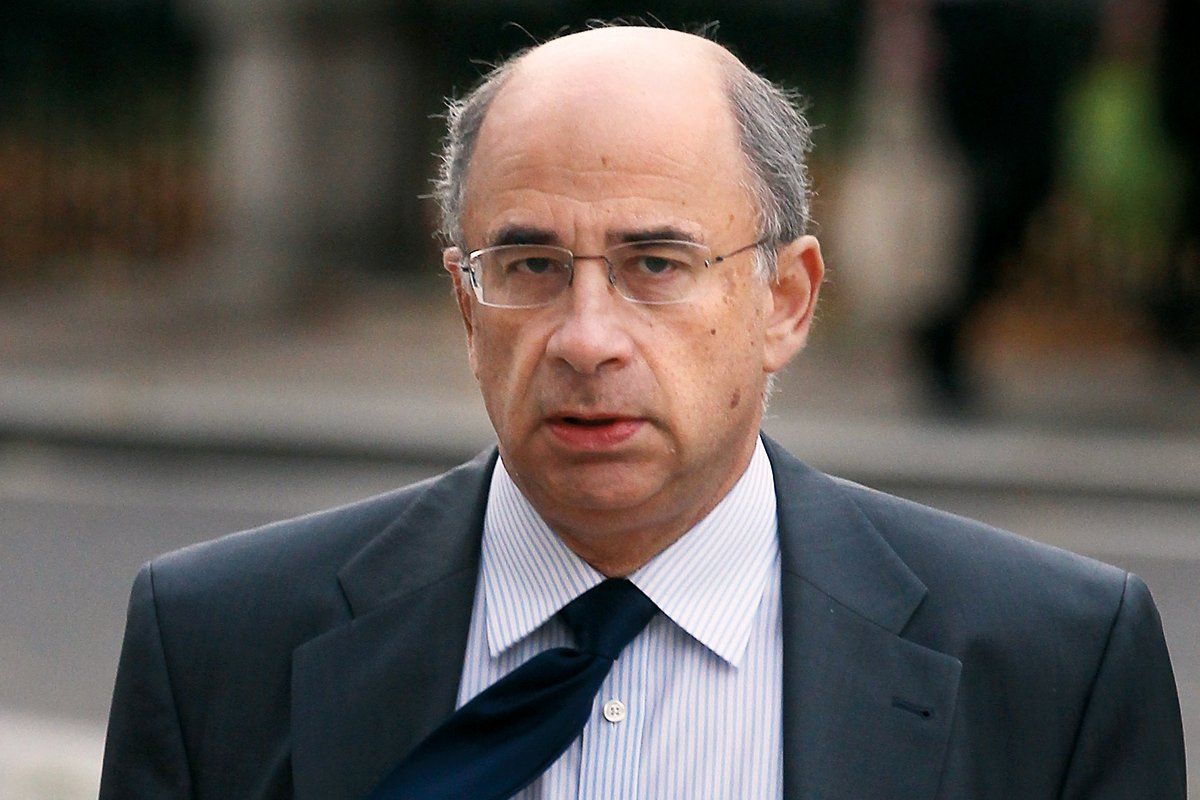
Judge Brian Leveson is no stranger to the rough manners of Britain's tabloid press. Earlier this year he found his views on sentencing ridiculed in The Sun, the best-selling daily in Rupert Murdoch's News International stable. The suggestion from a panel chaired by Leveson that some drug dealers convicted of lesser offenses might be spared jail was condemned as "barmy." A slogan above the image of a judge's wig read: "The Sun says no to soft justice."
Bad move. Today it's The Sun's turn to face its accusers, and it's Lord Justice Leveson who's sitting in judgment. Three weeks ago Leveson opened the first hearings of the public inquiry into the ethics of the British media, set up by the government in response to public outrage over the phone-hacking scandal at Murdoch's now-defunct News of the World. Within a year he will be drafting recommendations for the future regulation of the press that could put a permanent check on tabloid excess.
Not that the bespectacled 62-year-old shows signs of anti-media bias. The dry manner of his pronouncements suggests sober impartiality rather than flamboyance. At the opening of the inquiry he explained his own view of its purpose: "The press provides an essential check on all aspects of public life. That is why any failure within the media affects all of us. At the heart of this inquiry, therefore, may be one simple question: who guards the guardians?"
From the evidence so far, that guardianship looks questionable at best. In the hushed surroundings of Court 73 at the Royal Courts of Justice, Leveson has heard much about the raucous and often unscrupulous world of Fleet Street journalism. Celebrity witnesses from actor Hugh Grant to Tony Blair's former spin doctor Alastair Campbell have queued up to tell of their experiences at the hands of journalists apparently un-troubled by principle when in pursuit of a story.
Take the case of the reporter who arranged for an interview request to be stuffed into the schoolbag of J. K. Rowling's daughter. Or the private investigator in the pay of the News of the World who hacked into the phone of a murdered 13-year-old, Milly Dowler. Or the singer Charlotte Church, who alleged that as a child star she was offered the choice of a $150,000 payment or favorable coverage if she agreed to sing at Rupert Murdoch's wedding. (She waived the fee.) Or the lawyer whose daughter and ex-wife were secretly trailed and videotaped after he represented hacking victims.
All that's a long way from the day-to-day world of the presiding judge. Leveson has followed the strictly conventional route into the senior ranks of the British establishment: a private school in Liverpool, followed by a degree from Oxford University and a distinguished career as a barrister before his appointment to the High Court in 2000. Colleagues speak of a serious lawyer who's considered a safe pair of hands. His résumé features a 30-year marriage, three children, and a golfing habit.
But as a onetime criminal lawyer, Leveson won't be easily shocked or awed by media attention. Back in 1995, he was responsible for prosecuting Fred and Rosemary West, who were charged with multiple murders; Rosemary West was convicted of killing 10 people. As a judge, he presided over the 2005 high-profile trial involving the racist murder of a black student. (At the time, The Sun spoke of his "tough" sentencing.)
And he has a confident way of dealing with media criticism. When it came to light that he had attended parties hosted by Matthew Freud, the PR guru married to Rupert Murdoch's daughter Elisabeth, Leveson was unfazed. In his own words: "Had I had the slightest doubt about my own position I would not have accepted the appointment."The British tabloids can expect a fairer hearing than they sometimes awarded to their own victims.
Uncommon Knowledge
Newsweek is committed to challenging conventional wisdom and finding connections in the search for common ground.
Newsweek is committed to challenging conventional wisdom and finding connections in the search for common ground.





